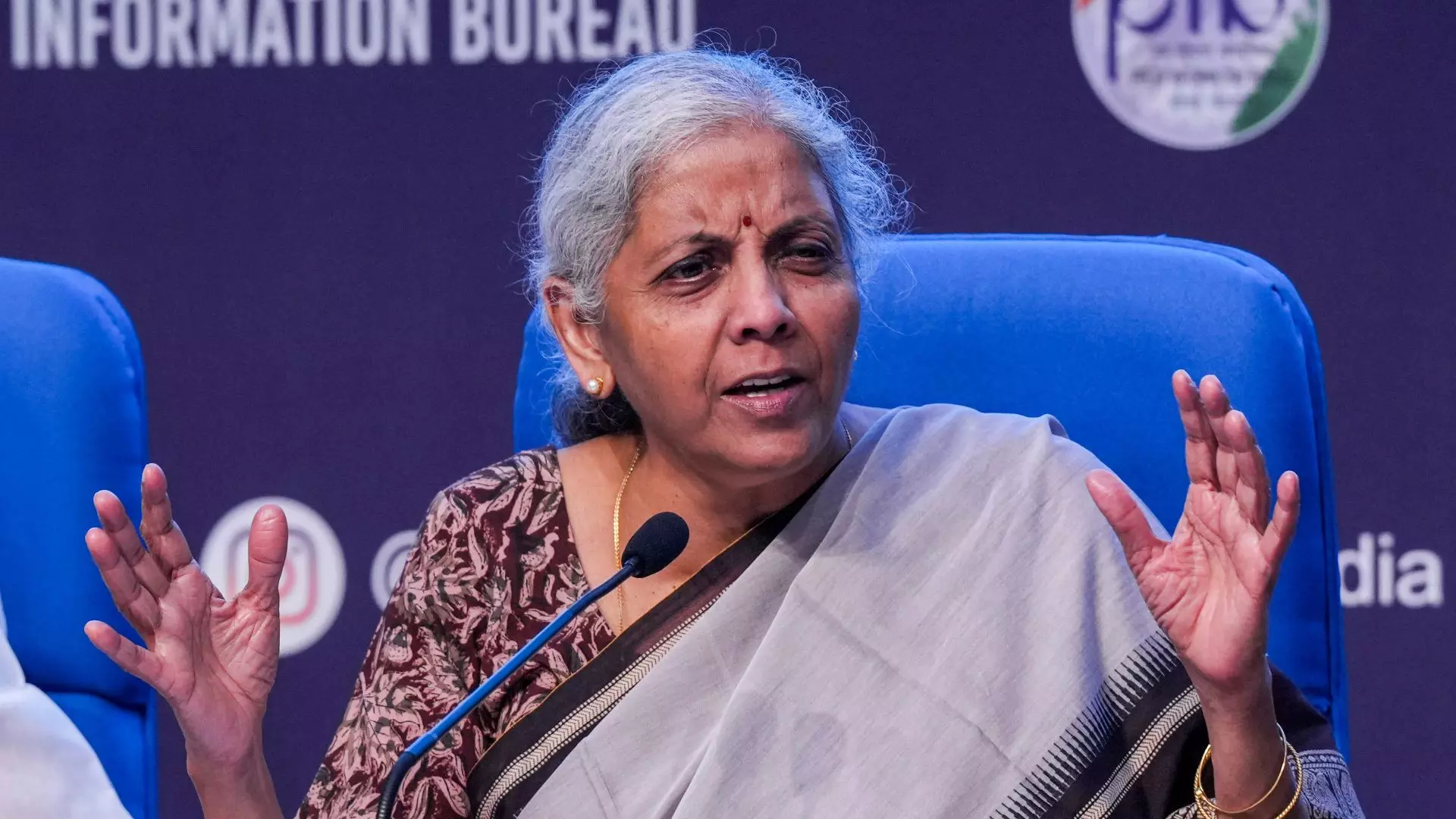AA Edit | A Budget for continuity, no reckless initiatives
Union Budget 2024 by Nirmala Sitharaman emphasises continuity over bold reforms, with key focus areas including skilling, MSMEs, and infrastructure

Admirably managing a slew of varied expectations from a range of stakeholders, amidst a difficult global situation economically, Union finance minister Nirmala Sitharaman presented a Budget of continuity rather than one that could have addressed systemic issues in the Indian economy, but would have a come with a higher dose of risk for everyone.
Though the Budget was themed to be the one focusing on employment, skilling, MSMEs and the middle class, it focused on taking incremental steps, which has become a hallmark of the Narendra Modi government in the last 10 years, rather than aim for spectacular leaps, which might have been too ambitious.
Agriculture, which was expected all-round to be the main focus of the government, was surprisingly confined to six paragraphs of the Budget speech, which dwelt on research, release of newer varieties, natural farming, missions for pulses and oilseeds, vegetable production and digital public infrastructure for agriculture. However, none of these was a new proposal but rather presented themselves as a continuum of the previous editions, as well as the interim budget presented before the Lok Sabha elections.
On the front of unemployment and jobs creation, the minister spoke of transferring Rs 15,000 to first-time employees as a direct benefit transfer (DBT), and reimbursing Rs 3,000 per month to the employer for every additional employee hired by them for the next two years. Ms Sitharaman also announced an incentive for employees and the employer for creating additional employment. Neither Rs 15,000 to be given to the employee nor Rs 36,000 a year to the employer could convince a company to hire additional employees.
The Budget, however, appears to have done well on skilling, a major concern for society both from the perspective of the industry, and the job seekers and youth. Setting up of 1,000 Industrial Training Institutes and Model Skill Loan Scheme could help people get employable. The internship scheme with an allowance of Rs 5,000 a month could be beneficial for students to gain real-life work experience. However, whether major companies would be willing to bear the internship cost, as suggested in the Budget, is an open-ended question.
Micro, Small and Medium Enterprises (MSMEs) are offered a credit guarantee scheme, and softer repayment provisions for the stress period. However, the main issue that the MSMEs confront is the shrinking market after the Goods and Services Tax (GST) was implemented, but it was not addressed in the Budget. The MSMEs that function as suppliers for the larger industries often struggle with delayed bill payments, which the Budget sought to address by reducing the turnover threshold of participants in the bill discounting system.
Similarly, the middle classes will get a few things to feel really happy about, but nothing major. For salaried employees, standard deduction has been increased from Rs 50,000 to Rs 75,000, which will lead to a saving of between Rs 1,250 for those in the five per cent bracket and Rs 7,500 for those in the 30 per cent bracket.
The real big announcement in the Budget was made on infrastructure and benami properties. Continuing its policy of boosting economic growth through public investment, the Central government has proposed to spend Rs 11,11,111 crores on the infrastructure sector. It has also proposed to offer Rs 1.5 lakh crores interest-free loan to states for spending on infrastructure projects. It additionally offered viability gap funding to woo private sector investment into the infrastructure projects. Ms Sitharaman expects that this could create a strong multiplier effect in the economy.
The finance minister, presenting a record seventh consecutive Budget, also made a serious attempt to recover black money by offering immunity to persons fronting for the real owners of the benami properties if they make full disclosure. This could incentivise the benamidar to confess to the crime and allow the government to recover the black money.
Overall, a good dextrous Budget that will push policy continuity, increase trust and credibility, and deliver results in the medium-to-longer run.
